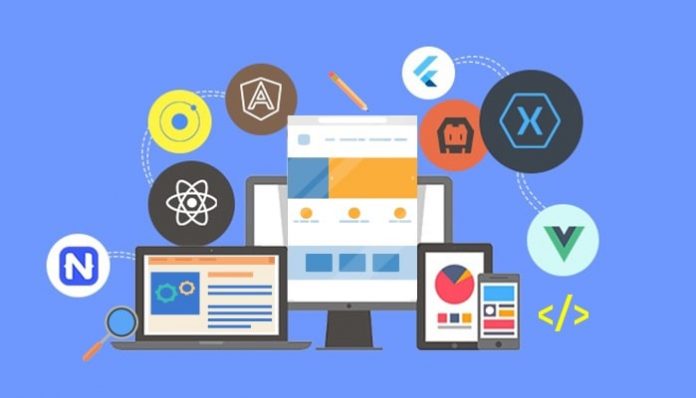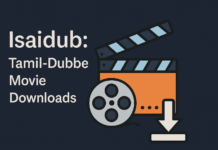Web frameworks have become an imperative part element of web development. The web applications are constantly evolving, and so are the technologies used for building them. This makes is incrementally to leverage the web development frameworks that help businesses create robust, seamless and user-centric web applications.
Currently, the web market is flooded with plentiful web frameworks out there. Each web framework comes with its peculiarities, strengths, and downsides. This makes the task of choosing the right web framework for your project an arduous deal.
As a web development company, we know that a precise choice of web framework can help to streamline and simplify the web development processes, whereas a wrong one can cost you an enormous amount of time, money and efforts. This is the reason why several developers around the world endorse using frameworks for web development. Also, a web framework is the ideal approach to building rich and interactive web applications. So, let’s take a look at some of the most popular web development frameworks for 2019.
But before jumping on the list of best frameworks, it is important to understand that web applications use frameworks to build both frontend (the client-side) and backend (the server-side). This article covers the top frontend and backend web development frameworks for 2019. So, let’s read on:
Also Read: How To Recover Data From A Corrupted Hard Drive
Frontend Web Development Frameworks
AngularJS
If it’s about creating sophisticated, single-page web applications, the only name you will hear is AngularJS. As an AngularJS development company, we recommend this framework is for building interactive single-page web apps. AngularJS is a comprehensive platform to develop complex client-side applications. And there’s a lot you can do with AngularJS.
While AngularJS 1.x used Javascript, it later adopted Typescript, a superset of Javascript. The only downside of AngularJS its size when compared to other frameworks. Plus, despite lacking SEO by nature, it allows web apps to be SEO optimized. However, AngularJs is versatile and favorite among Google, Microsoft, and Paypal.
VueJS
VueJS has grown in popularity by leaps and bounds. VueJS incepted as a standalone project but rapidly garnered attention and is one of the most trending JavaScript frameworks out there. The best part about VueJS is that it is progressive. This means one can use it as a part of an existing project and the rest of it works just right. It lets you use the component architecture to experiment and solve complex challenges.
React
Although not a framework but a frontend library, React is a widely recommended framework when it comes to building rich, interactive frontends. It was initially used for adopting the component-based architecture which later was adopted by some other popular frameworks like AngularJS and VueJS.
The virtual dom of React makes dom-manipulation even quicker. React is incredibly intuitive, thanks to its JSX syntax. It can be used for developing both client-side and server-side web applications. React was built by Facebook and is used by Facebook and Instagram.
Also Read: Chatbots vs Mobile Apps: Where The Future Belongs?
Backend Web Development Frameworks
Django
When it comes to backend web frameworks, Django tops the list. It is used in nearly 12,000 popular web applications worldwide. This alone speaks a lot about the framework’s popularity. Django was released in 2005, making it one of the oldest web development frameworks, but it’s still a top pick owing to its sophisticated approach to continuous enhancements and problem-solving. Additionally, Django is based on Python which is one of the most favoured programming languages across the globe.
Some of the prime features of Django include scalability, flexibility, and common use. It has a massive community that offers several packages and support along with robust technical documentation. From a small-scale app to a large, complex solution, it practically allows developing any type of web application.
It can be used for developing MVPs (Minimum Viable Product) for newly minted businesses. Django’s flexibility makes it easier to build MVPs with ease and its principle of code refusal facilitates time and budget optimization. Some of the renowned businesses that use Django are NASA, Pinterest, and Instagram, among many others.
ExpressJS
ExpressJS is widely known for its principles of speed and simplicity. ExpressJS is an open-source framework and a Node.js API as well as a commonly used web application development framework among many developers.
It comes with a range of out of the box tools and allows building solutions with a few lines of codes. The framework is highly intuitive, especially when a developer is familiar with Node.Js. a lot of popular businesses use ExpressJS among IBM, Accenture, Uber, and many others.
Ruby on Rails
Ruby on Rails is another popular Model-View-Controller (MVC) framework that leverages Ruby. Rails is an ideal framework to use for naïve developers. It helps amateurish developers get started with building web apps with great ease. This stellar framework offers several useful components including library-like dependencies to extend your web app functionalities.
This lets you build your app even faster and more efficiently. The community of Rails is vast, strong and supportive. It has numerous tutorials, screencasts, documents, and resources that can aid any developer to become a Rails professional within no time. Ruby on Rails is commonly used among some biggies like GitHub, Airbnb, Shopify, and Hulu.
While all these frameworks come with a set of their pros and cons, it is important to choose the frameworks the aptly suits your business and application requirements. Which other frameworks do you think will dominate the web development market in 2019? Share your thoughts with us using the comment box below.
Also Read: Tech Devices That Brought a Revolution in the Lives of the People











